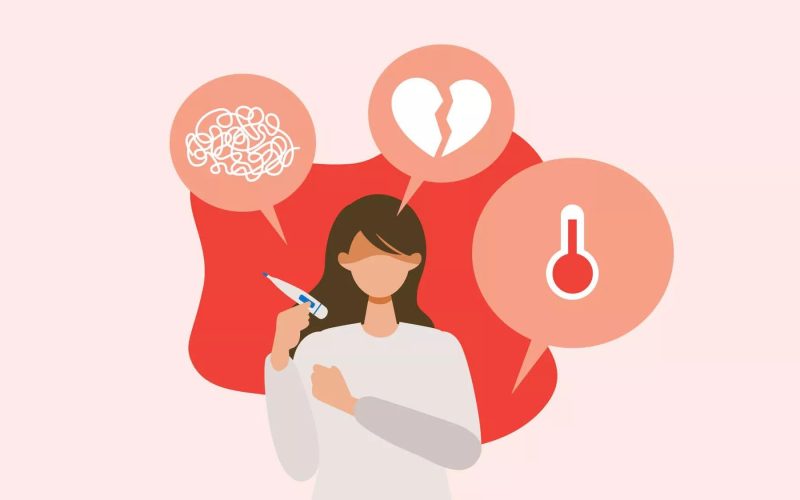Stressed? Your Body Knows: How Tension Takes a Toll
Have you ever felt the tightness in your chest after a deadline or the knot in your stomach before a big presentation? These are just a few ways our bodies communicate the impact of stress. While we often associate stress with feeling overwhelmed or anxious, it’s crucial to understand that chronic stress takes a significant toll on our physical health as well.
The Silent Culprit: Understanding How Stress Impacts Your Health
Stress is a natural response to challenging situations. It triggers the release of hormones like cortisol, preparing our bodies to face a threat. This “fight-or-flight” response is vital for survival in the short term. However, when stress becomes chronic, it can wreak havoc on our physical well-being.
From Fight-or-Flight to Damage: The Body’s Stress Response Explained
When we perceive a threat, our body goes into high alert. Our heart rate and breathing increase, blood pressure rises, and muscles tense up – all to prepare us for action. This is the body’s stress response, designed to help us deal with immediate danger.
However, in today’s fast-paced world, stressors are often constant – deadlines, financial pressures, and relationship challenges. When these stressors persist, the body remains in a perpetual state of high alert. This chronic activation of the stress response system disrupts our body’s natural balance, leading to a cascade of negative health consequences.
When Tension Becomes Chronic: The Physical Toll of Unmanaged Stress (Integrate Key Point Table Here)
Key Point Table: Stress and its Physical Impact
| System Affected | Physical Consequences of Chronic Stress |
| Immune System | Increased susceptibility to infections, slower healing times |
| Cardiovascular System | High blood pressure, increased risk of heart attack and stroke |
| Digestive System | Stomach ulcers, acid reflux, irritable bowel syndrome (IBS) |
| Musculoskeletal System | Muscle tension, headaches, chronic pain |
| Reproductive System | Irregular periods, decreased libido, sexual dysfunction |
| Sleep | Insomnia, difficulty falling asleep, restless sleep |

Chronic stress can negatively impact various bodily systems, as shown in the table above. It weakens the immune system, making us more susceptible to infections and hindering our ability to heal. Elevated blood pressure and increased strain on the heart put us at greater risk for cardiovascular diseases. Stress can also disrupt the digestive system, leading to stomach issues and irritable bowel syndrome (IBS).
The musculoskeletal system also feels the strain of chronic stress, manifesting as muscle tension, headaches, and chronic pain. Even our reproductive health can be affected, with women experiencing irregular periods and decreased libido. Perhaps most noticeably, chronic stress disrupts sleep patterns, leading to insomnia, difficulty falling asleep, and restless sleep.
The Domino Effect: How Stress Affects Specific Systems in Your Body
The impact of stress doesn’t occur in isolation. It creates a domino effect, with issues in one system affecting others. For example, chronic stress can worsen digestive problems, leading to nutrient deficiencies that further weaken the immune system. Stress-induced sleep disturbances can exacerbate fatigue and hinder the body’s natural healing processes.
The complex interplay between stress and physical health underscores the importance of managing stress effectively.
Beyond the Physical: The Mental and Emotional Impact of Stress
While the physical consequences of stress are significant, it’s crucial to acknowledge its impact on our mental and emotional well-being. Chronic stress can lead to:
- Anxiety and Depression: Constant worry and a sense of overwhelm can escalate into anxiety and even depression.
- Brain Fog: Stress can impair cognitive function, leading to difficulty concentrating, remembering things, and making decisions.
- Irritability and Mood Swings: The constant activation of the stress response makes it harder to regulate emotions, resulting in increased irritability and mood swings.
- Burnout: Chronic stress can lead to emotional exhaustion, cynicism, and a sense of detachment from work or daily activities.
This highlights the interconnectedness of our mind and body. When stress takes a toll on our mental and emotional health, it inevitably affects our physical well-being, creating a vicious cycle.
Picture by: https://www.usatoday.com/story/life/health-wellness/2023/04/03/can-stress-make-you-sick-symptoms-throwing-up-impacts-body/11591550002/
Breaking the Cycle: Practical Strategies to Manage Stress in Your Life
The good news is that stress management is a skill we can all learn and develop. Here are some practical strategies you can incorporate into your daily life:
- Identify Your Stressors: The first step is to become aware of what triggers your stress response. Is it work deadlines, financial worries, or relationship conflicts? Once you identify your stressors, you can develop coping mechanisms to deal with them effectively.
- Practice Relaxation Techniques: Techniques like deep breathing, meditation, and progressive muscle relaxation can activate the body’s relaxation response, counteracting the effects of stress hormones.
- Prioritize Time Management: Feeling overwhelmed by a never-ending to-do list can be a major stressor. Learn effective time management skills to prioritize tasks, delegate when possible, and set realistic deadlines.
- Engage in Regular Exercise: Physical activity is a powerful stress reliever. Aim for at least 30 minutes of moderate-intensity exercise most days of the week.
- Maintain a Healthy Sleep Routine: Adequate sleep is crucial for both physical and mental well-being. Establish a regular sleep schedule, create a relaxing bedtime routine, and ensure your bedroom environment is conducive to sleep.
- Connect with Loved Ones: Strong social connections are a buffer against stress. Nurture relationships with family and friends who offer support and understanding.
- Make Time for Activities You Enjoy: Schedule time for hobbies and activities that bring you joy. Engaging in activities you find pleasurable helps reduce stress and boosts overall well-being.
- Seek Professional Help: If you’re struggling to manage stress on your own, don’t hesitate to seek professional help. Therapists can equip you with additional tools and strategies for stress management.
Taking Action: Personalized Tips for Stress Reduction
The key to managing stress effectively lies in personalization. Think about what works best for you. Do you find solace in spending time in nature? Perhaps listening to calming music helps you unwind. Explore different relaxation techniques and activities to discover what helps you de-stress and recharge.
Remember, You’re Not Alone: Resources and Support for Stress Management
Many resources are available to help you on your journey towards stress management.
- The American Psychological Association (APA) offers a wealth of information on stress and healthy coping mechanisms.
- The National Institute of Mental Health (NIMH) provides resources and support for stress-related disorders.
- Online support groups and communities connect you with others who understand the challenges of managing stress.
Don’t be afraid to reach out for help. Managing stress is a journey, not a destination. With the right tools and support, you can cultivate resilience and live a healthier, happier life.
Conclusion: Embrace a Healthier, Less Stressed You
By understanding the impact of stress on your body and mind, and by implementing these practical strategies, you can take control of your well-being. Remember, prioritizing self-care is not a luxury – it’s a necessity. When you prioritize your health and happiness, you’ll be better equipped to navigate the inevitable challenges life throws your way. Embrace a healthier, less stressed you, and pave the way for a more fulfilling and vibrant life.










